The quest for sustainable and efficient energy solutions has become increasingly important as the global demand for renewable energy grows. In this context, lithium iron batteries have emerged as a significant player in the realm of solar power systems. This blog will explore the compatibility of lithium iron batteries with solar panels, compare them to other types of batteries and examine their benefits and challenges.
Understanding Solar Power Storage
Basics of Solar Energy Systems
Solar panels convert sunlight into electrical energy, a clean and renewable source crucial for modern energy needs. The process involves photovoltaic cells that capture solar radiation and convert it into usable electricity. The importance of energy storage in these systems cannot be overstated, as it ensures the availability of power even when sunlight is not direct or during the night. Storage systems are essential for balancing supply and demand, providing power during peak usage times, and ensuring reliability.
In solar systems, batteries store the electricity generated during peak sunlight hours and make it available for use at other times. This capability is vital for off-grid systems and adds resilience to grid-connected systems by providing backup power during outages and reducing dependency on the utility grid. Efficient storage solutions enhance the overall value and functionality of solar energy systems, making them a crucial component in renewable energy landscapes.
Types of Solar Batteries
There are several battery types suitable for solar applications, including lead-acid, nickel-based, and lithium-based batteries. Lithium batteries, particularly lithium iron (LiFePO4) and lithium-ion technologies, are popular due to their efficiency and longevity. Each battery type has its specific characteristics; for instance, lead-acid batteries are known for their affordability and reliability, while nickel-based batteries offer moderate energy density and durability.
Lithium-based batteries, especially lithium iron phosphate (LiFePO4) batteries, are preferred for solar applications due to their higher energy density, longer life cycles, and safety advantages. They are safer, as they don't risk thermal runaway like other lithium-ion batteries, and are more environmentally friendly because they do not contain cobalt. These attributes contribute to their growing popularity in solar energy storage.
Lithium Batteries in Solar Power
Lithium Iron vs. Lithium Ion Batteries
Lithium iron (LiFePO4) and lithium-ion batteries differ significantly in their chemical composition and performance. LiFePO4 batteries offer enhanced safety and stability, making them preferable for solar storage, whereas lithium-ion batteries, while also efficient, are more prone to overheating. Lithium iron batteries are typically designed to offer more cycles, which translates to a longer lifespan and better return on investment in energy storage applications.
The safety aspect of LiFePO4 is particularly crucial; they are less likely to catch fire or explode under duress, unlike some lithium-ion batteries that use other cathode materials. This safety factor makes them an excellent choice for residential and commercial solar applications, where reliability and safety are paramount. Furthermore, the efficiency of lithium iron batteries in terms of charge and discharge rates allows for quick energy access and high throughput, which are beneficial for managing fluctuating solar outputs.
Benefits of Lithium Iron Batteries for Solar Panels
Lithium iron batteries are renowned for their durability and safety features, which are crucial in the fluctuating conditions associated with solar power. Their deep discharge capability allows for more significant energy extraction per cycle, enhancing the overall efficiency of solar systems. These batteries also maintain a stable voltage throughout the discharge cycle, providing consistent power output which is essential for sensitive electronic devices and for maximizing the utility of the solar system.
Their long life cycle makes lithium iron batteries a cost-effective solution over time. They typically offer thousands of charge-discharge cycles with minimal degradation, which means they can last several years without significant capacity loss. This durability reduces the need for frequent replacements and lowers the long-term cost of ownership. Additionally, LiFePO4 batteries are generally maintenance-free, which further reduces the ongoing costs associated with solar power systems.

Case Studies
Several successful implementations of lithium iron batteries in solar setups demonstrate their effectiveness and reliability. These examples highlight the growing trend of integrating LiFePO4 batteries into renewable energy solutions. For instance, a residential solar system in California has effectively used lithium iron batteries to provide uninterrupted power supply during peak hours and blackouts, showcasing the practical benefits of this technology in real-world applications.
Another case study involves a large solar farm in Australia that has adopted lithium iron batteries for energy storage. This project has demonstrated significant improvements in grid stability and renewable energy utilization, proving the scalability of lithium-iron battery solutions in both residential and commercial settings. These examples serve as compelling evidence of the viability and advantages of lithium iron batteries in diverse solar energy applications.
Choosing the Right Lithium Battery for Your Solar System
Factors to Consider
Selecting the right battery involves considering capacity and power requirements, compatibility with solar panels and inverters, and environmental factors like climate. When choosing a battery, it's essential to assess the energy needs of the household or facility to ensure the battery's capacity aligns with expected consumption. Additionally, compatibility with existing solar components is crucial for efficient system integration.
Environmental conditions also play a significant role in battery performance and longevity. For instance, lithium iron batteries perform well in a variety of climatic conditions, maintaining high efficiency and safety profiles even in extreme temperatures. However, it's important to ensure that the chosen battery can withstand the specific environmental conditions it will be subjected to, such as high temperatures or humidity, which could impact performance and lifespan.
Lithium Solar Battery Options
The market presents a variety of lithium solar battery options, with LANPWR lithium iron and lithium-ion batteries standing out for their exceptional reliability and performance in residential solar setups. These batteries are designed to provide high energy density and long operational life, ideal for maintaining high-performance levels in solar systems.
Beyond LANPWR, the market also offers a diverse range of other brands and models, each tailored to meet specific needs and budgets. When selecting a lithium solar battery, it's crucial to evaluate features such as charge cycles, warranty periods, and manufacturer support. Comparing these aspects helps in choosing the battery that best fits your particular requirements, ensuring your solar system operates efficiently and continues to deliver value throughout its lifespan.
Installation and Maintenance
Installing Lithium Batteries for Solar Panels
Integrating lithium batteries into solar systems requires careful planning. This section provides a step-by-step guide on installation, emphasizing optimal placement and connection to maximize efficiency. The installation process involves sizing the battery bank appropriately to meet energy demands, ensuring proper ventilation to avoid overheating, and establishing secure connections to prevent power losses. These steps are critical for safeguarding the integrity of both the batteries and the entire solar system.
Correct installation not only enhances system efficiency but also prolongs the life of the batteries. It is advisable to consult with a professional installer who can assess specific site conditions and tailor the installation to maximize the benefits of the lithium batteries. Professional installers can also ensure that all local codes and regulations are met, which is crucial for both safety and compliance.
Maintenance and Safety
Routine maintenance of lithium batteries is essential for ensuring their longevity and safety. This subchapter outlines maintenance tips and safety precautions to prevent issues such as overheating and capacity loss. Here are key maintenance practices:
- Regular Inspections: Conduct frequent checks for signs of wear and tear.
- Ensure that all battery connections are tight and corrosion-free.
- Look for any physical deformities or leakage from batteries.
- Continuously monitor the battery’s voltage, current, and temperature.
- Use monitoring systems to track performance trends and detect early signs of degradation.
Safety is paramount when dealing with lithium batteries. Following these guidelines will help maintain the safety and efficiency of the battery system:
- Adherence to Manufacturer Guidelines: Always follow the manufacturer's instructions for the use, handling, and storage of batteries.
- Ensure that batteries are housed in adequate enclosures to protect against environmental factors and physical damage.
- Check that these enclosures are ventilated properly to dissipate heat.
- Install essential safety devices such as circuit breakers and fuses to protect against electrical faults.
- Regularly inspect these safety devices to ensure they are functional and effectively connected.

Market and Future Trends
Current Market Overview
An analysis of the current market for lithium solar batteries, focusing on pricing trends and the availability of models like the lithium-ion home battery and lithium storage battery. These products are increasingly popular among consumers seeking efficient solar storage solutions. The market has seen a significant increase in demand for lithium batteries as more consumers become aware of the benefits of renewable energy and seek more efficient and reliable storage solutions.
The pricing of lithium solar batteries has become more competitive as technology advances and production scales up. This trend is encouraging for potential buyers, as it makes solar power systems more accessible and affordable. Additionally, the wide range of available products allows consumers to choose solutions that best fit their specific energy needs and budget constraints.
Future Developments in Solar Battery Technology
Emerging technologies and innovations continue to enhance the capabilities of lithium battery storage. This subchapter discusses the potential impacts of these advancements on the solar industry, promising a brighter and more efficient future. Innovations in battery technology, such as improved cathode materials and better electrolyte formulations, are making lithium batteries even safer and more efficient.
The future of solar battery technology also includes the integration of smart features, such as advanced battery management systems (BMS) that optimize charging and discharging processes to extend battery life and improve performance. These developments are expected to drive further adoption of solar power systems, making renewable energy more viable and widespread.
In conclusion, lithium iron batteries represent a significant advancement in the efficiency and sustainability of solar power systems. Their stable and dependable energy storage capabilities make them an outstanding option for individuals seeking to enhance their solar energy setups. By choosing lithium-iron batteries, users can expect a robust and effective solution that supports the shift towards more sustainable energy practices.
Consider the long-term benefits and cost-effectiveness of upgrading to lithium-iron batteries for your solar panel system. Explore further resources and check out the latest models from trusted manufacturers like LANPWR, which lead the market with their innovative and high-quality battery solutions.

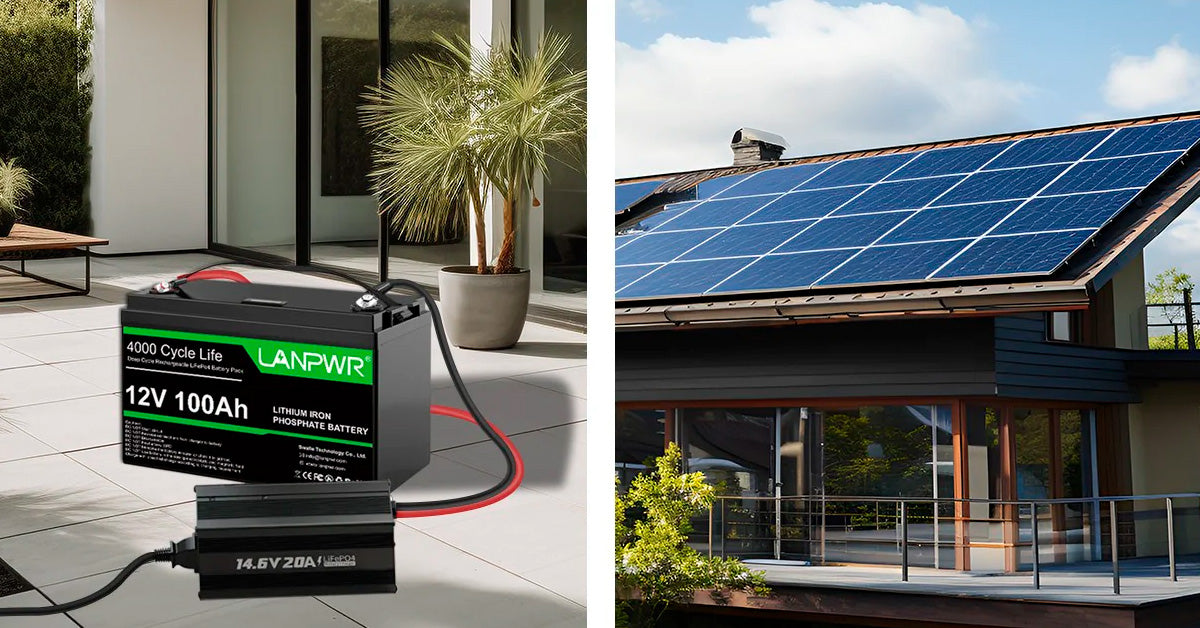
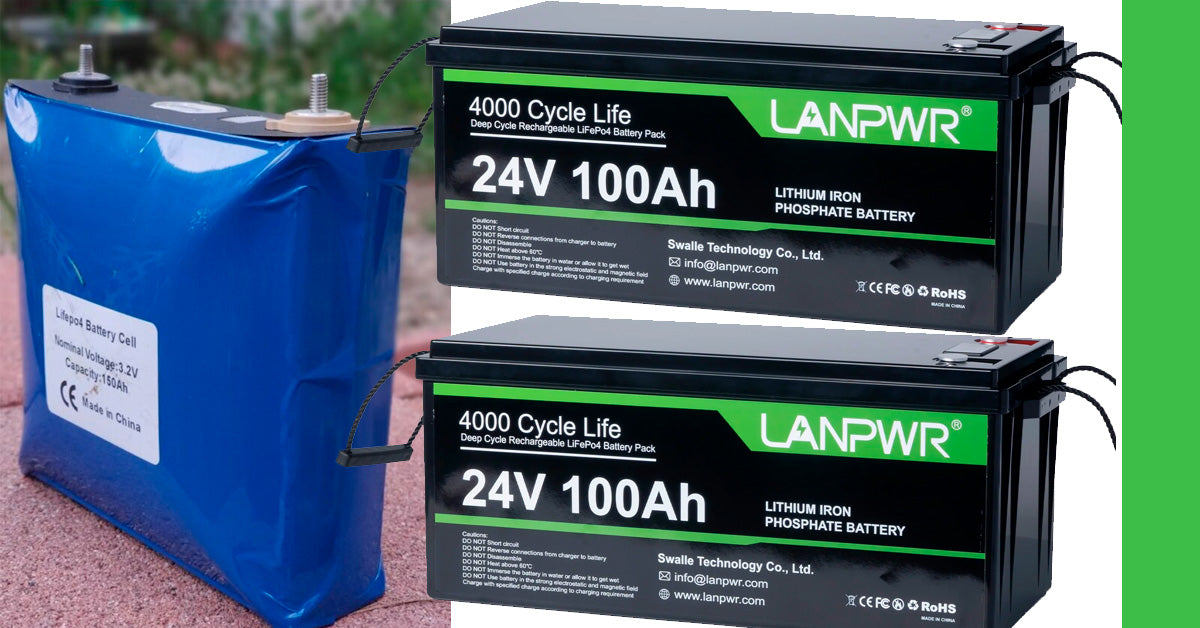
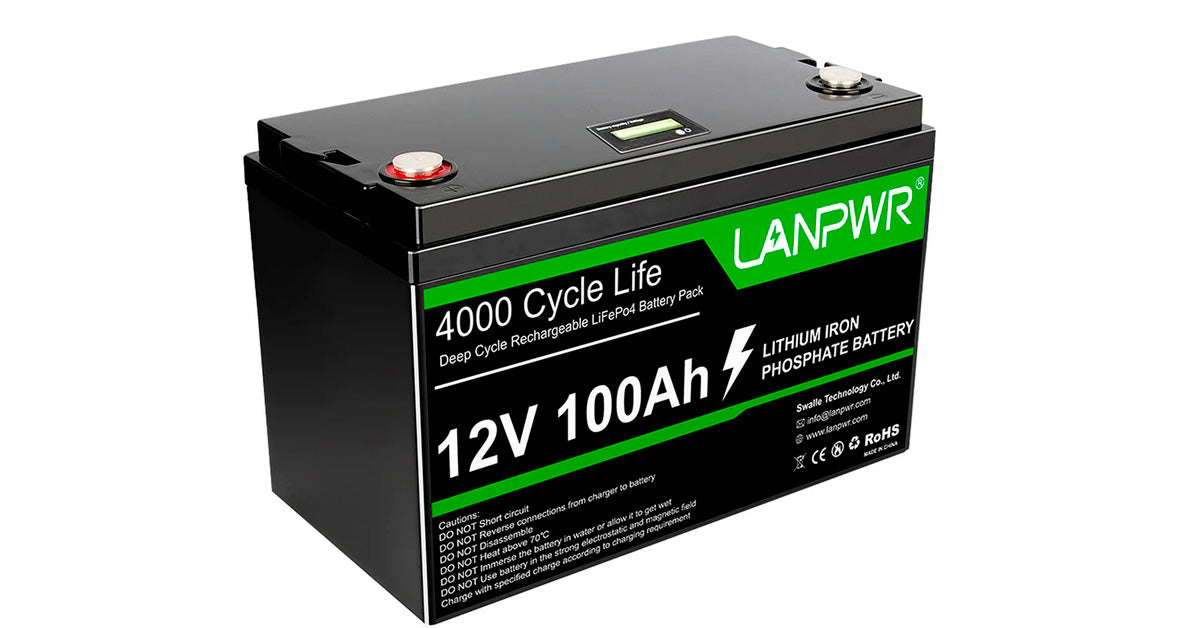
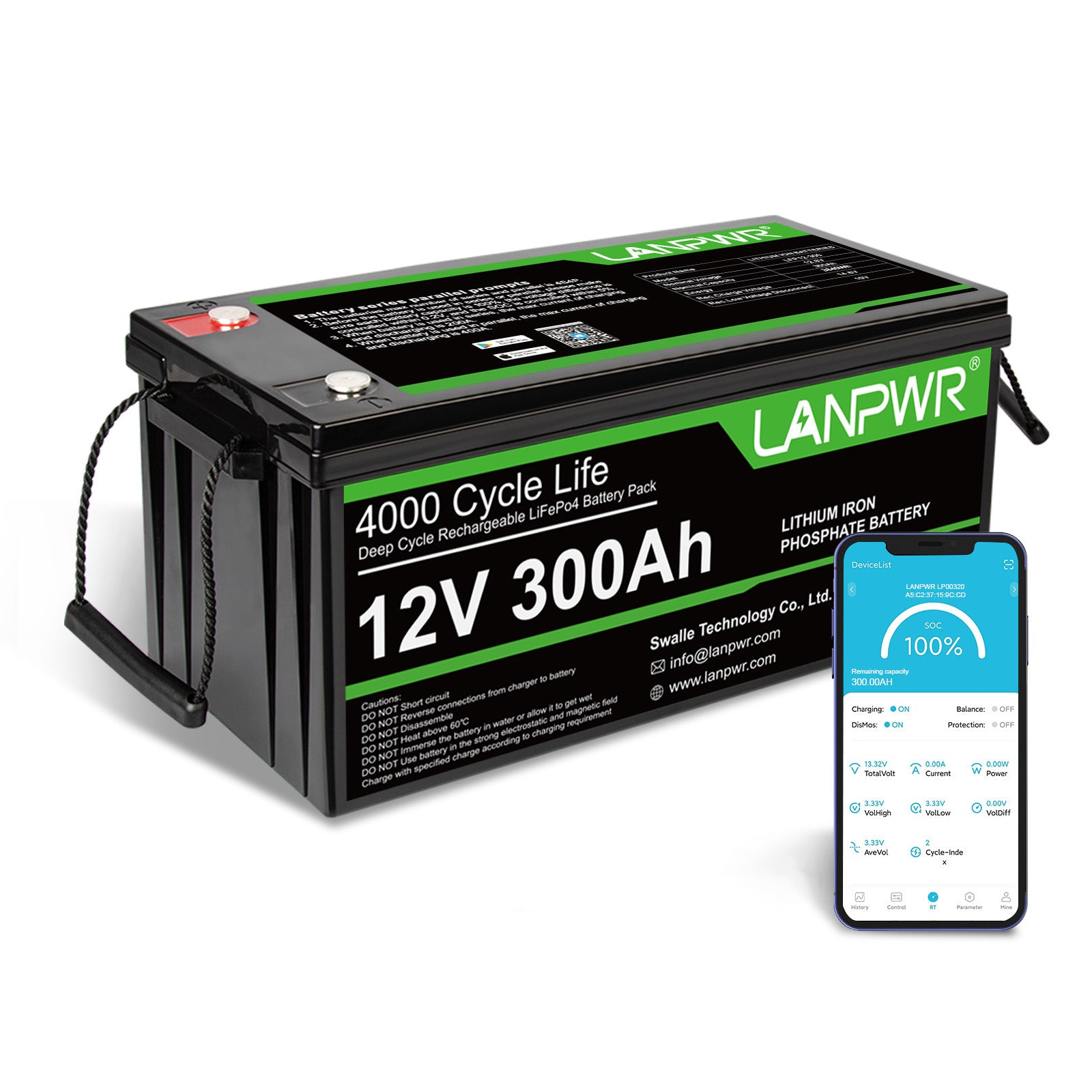
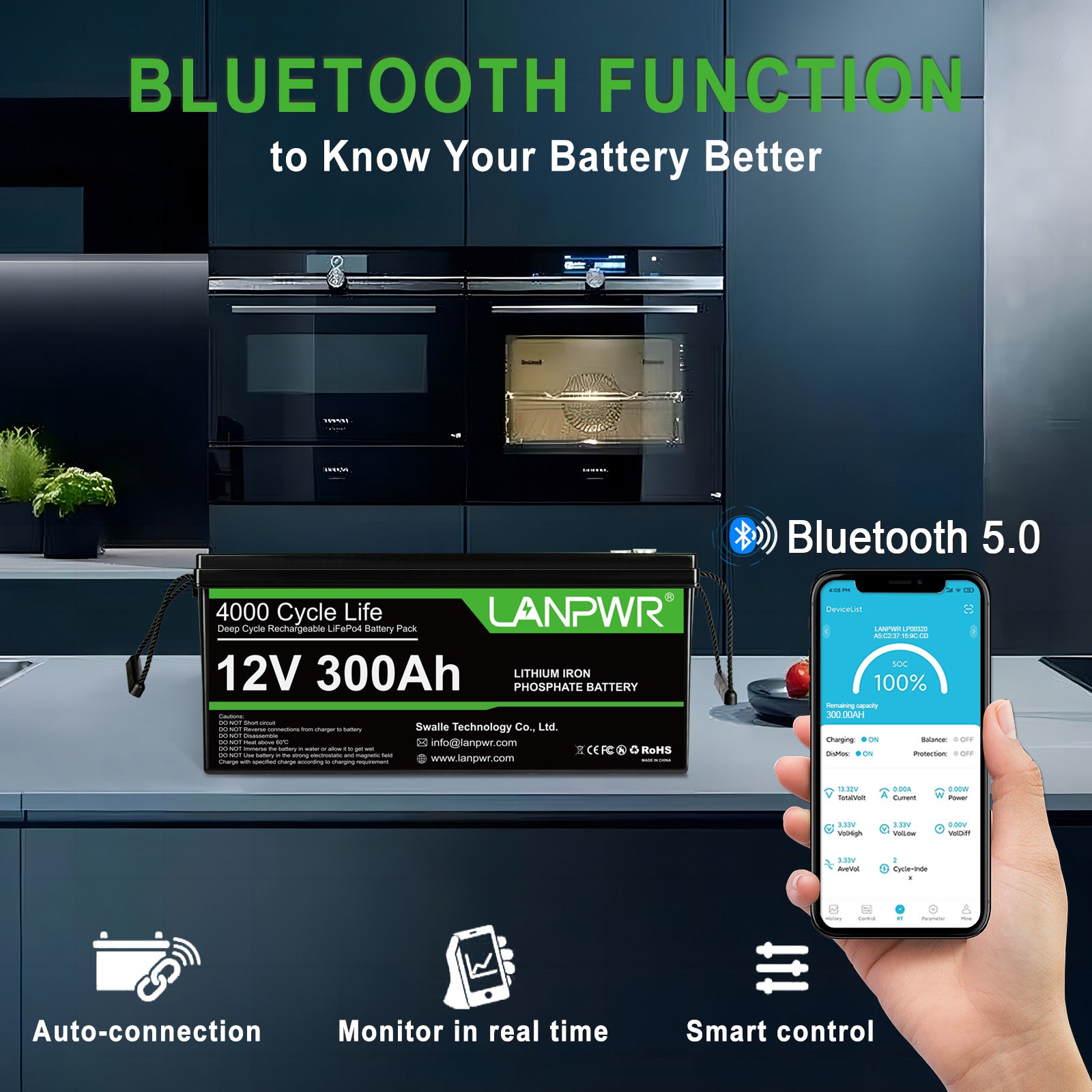
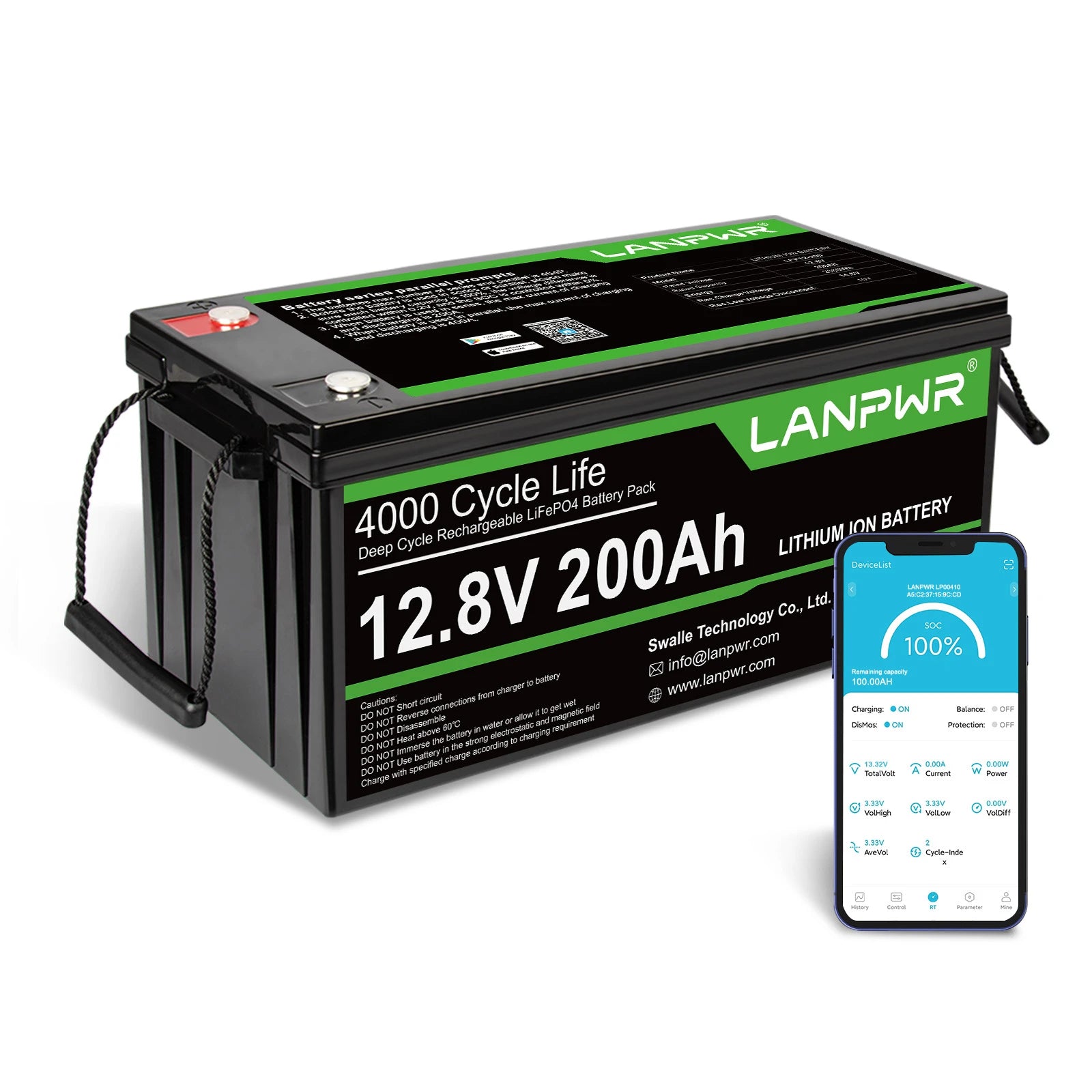
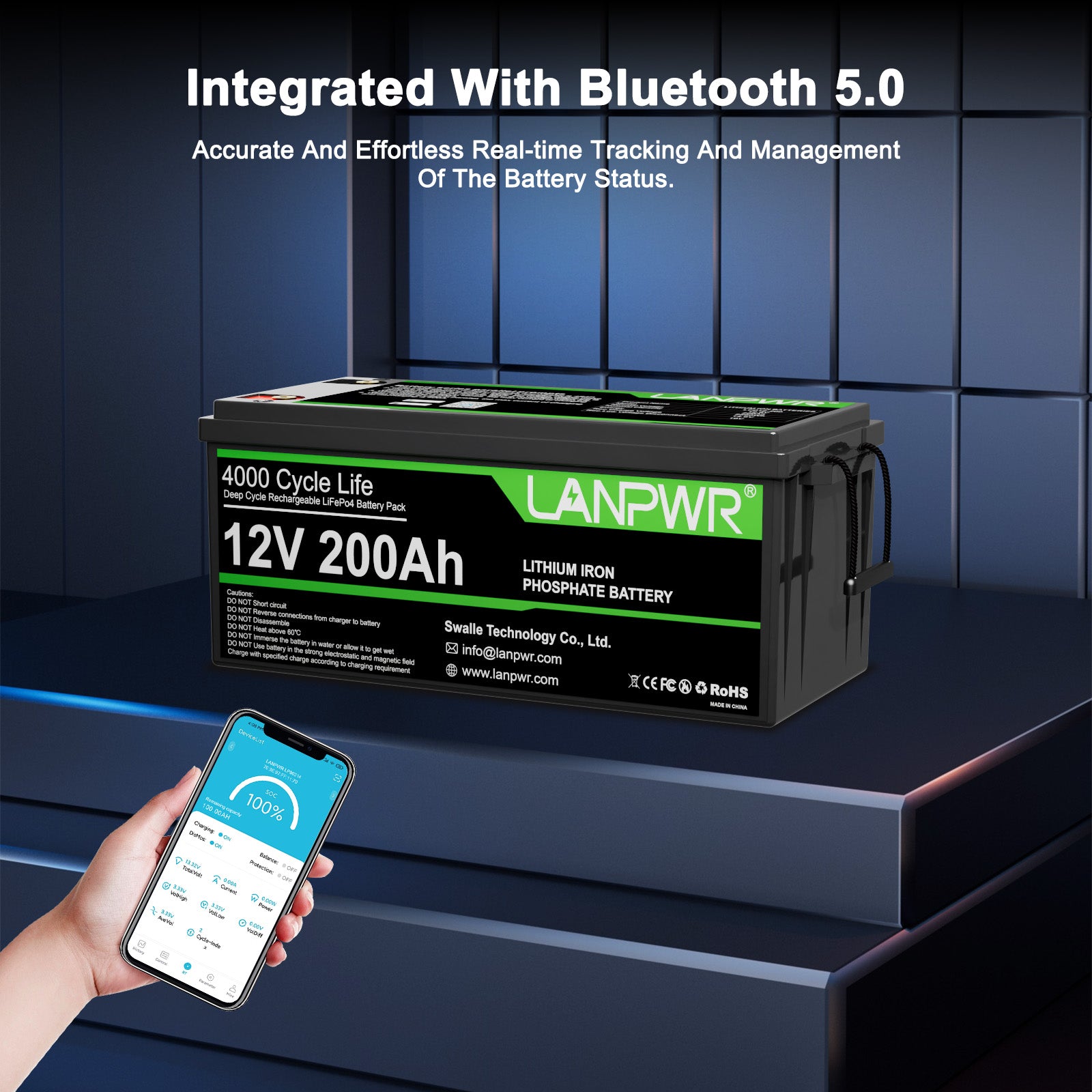
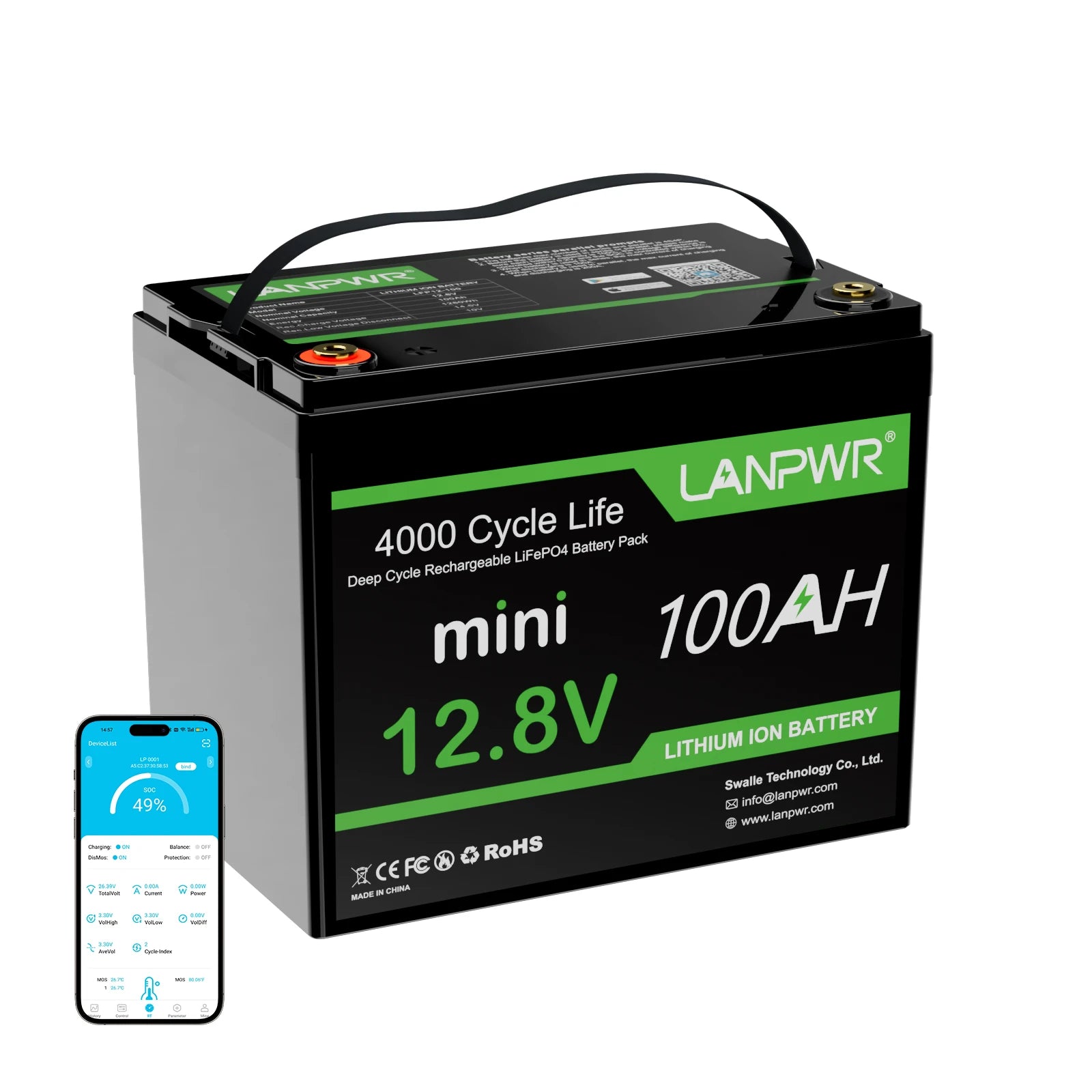

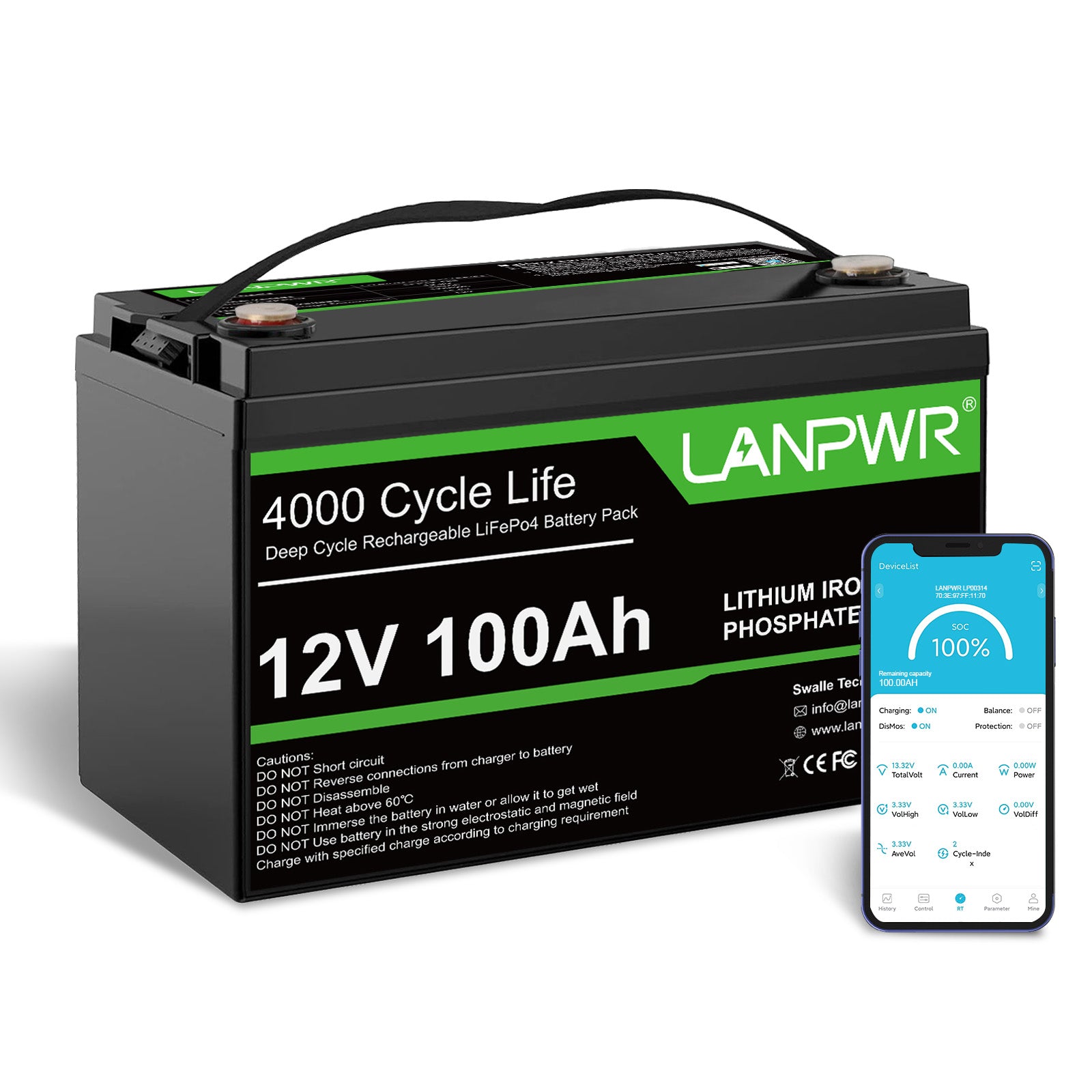
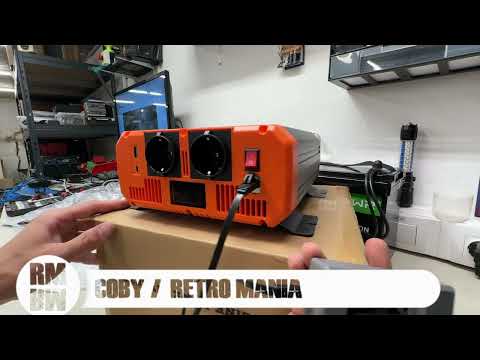
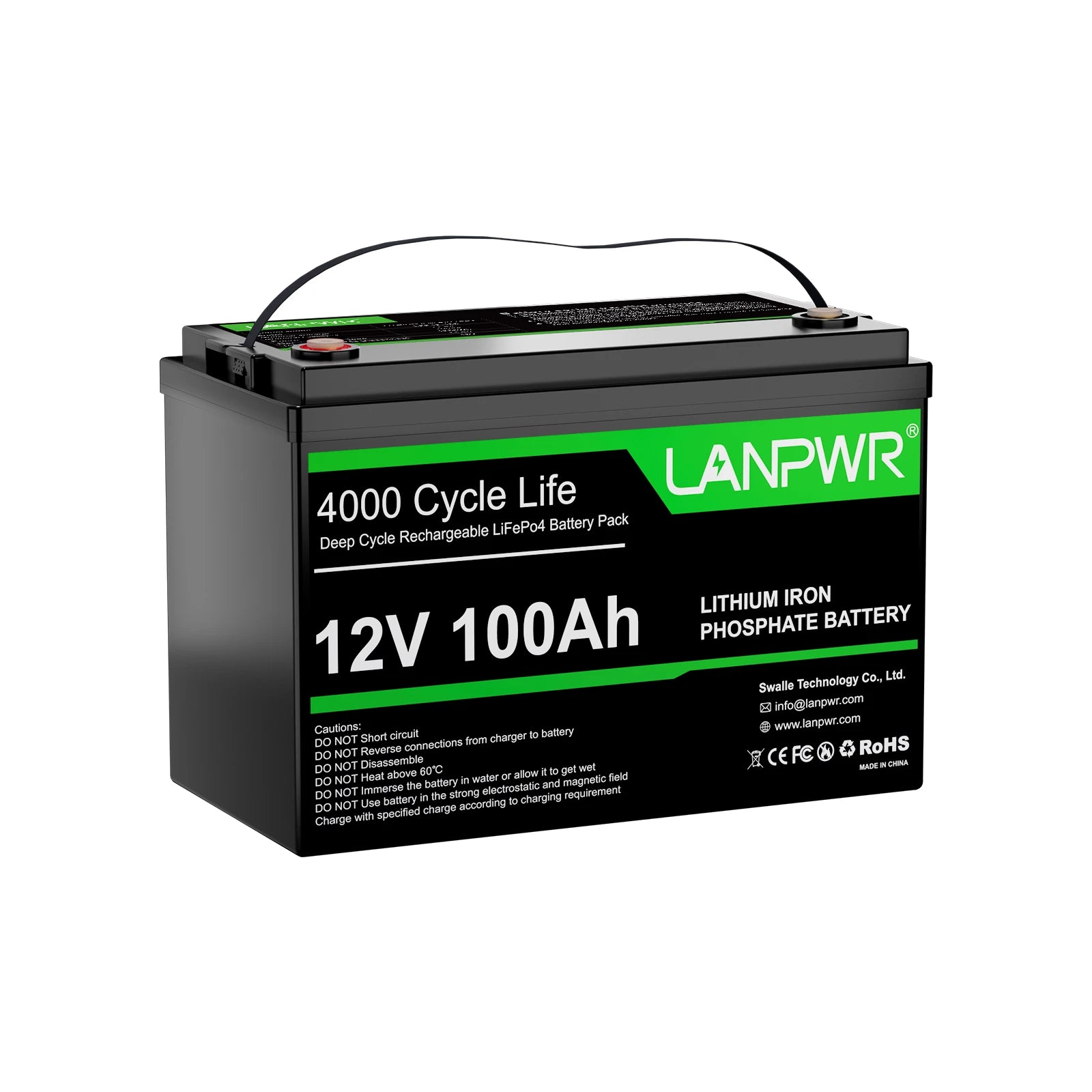
Leave a comment
This site is protected by hCaptcha and the hCaptcha Privacy Policy and Terms of Service apply.